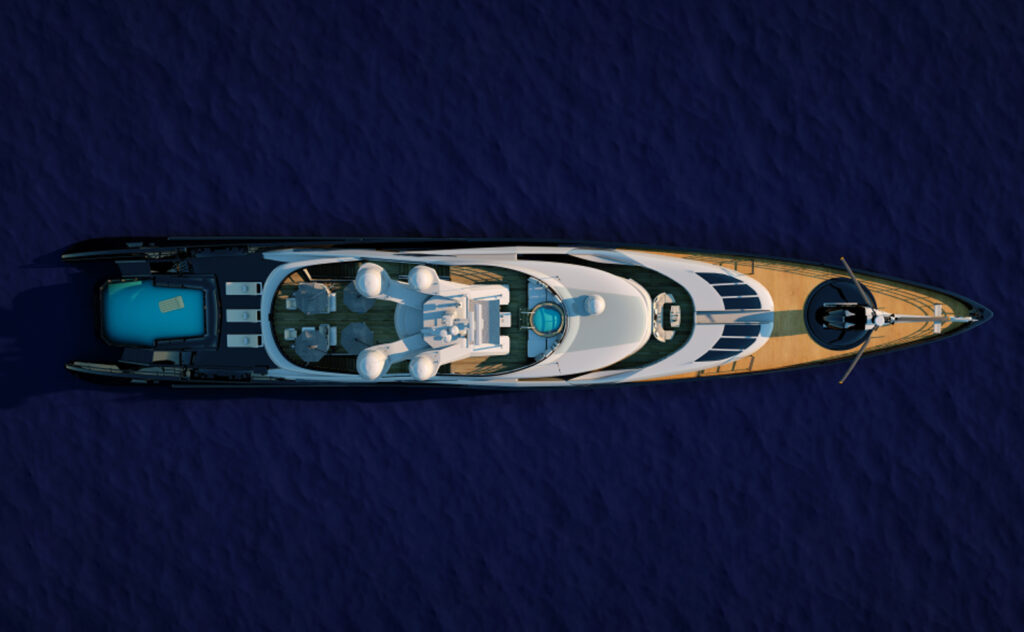From a fiscal point of view, careful attention should be paid to VAT issues. When purchasing from an Italian shipyard, the general rule is that the price is subject to 22% VAT. However, there are some specific cases in which it is possible to take advantage of Legal non-taxable regimes . In particular:
■ In the case of a buyer who runs a commercial business (typically a company), who is not resident in Italy but in another State of the European Union, he can take advantage of the non-taxable regime that exists for intra-community sales. However, this regime is only applicable if the yacht is transported to another EU state by the tenth day of the month following the transfer;
■ In the case of the aforementioned buyer carrying out a commercial activity , who is resident or non-resident in Italy, it is possible to take advantage of another VAT exemption regime, which is based on the assumption that the vessel will navigate on high seas. According to the Revenue Agency, a vessel is considered for use on the high seas “if it has made in the previous calendar year or, in the case of first use, makes in the current year, a number of voyages on the high seas in excess of 70 percent.” A “voyage on the high seas” is considered to be when, during the journey between two embarkations, the ship passes the limit of territorial waters, that is ; 12 nautical miles from the coast, calculated on the basis of the low tide line, and regardless of the itinerary followed;
■ Another possibility of non-taxable VAT transfer is when the purchaser, after completing the appropriate customs formalities , exports the yacht outside EU waters. Lastly, it should be remembered that in the event that the yacht is the subject of a leasing contract, the current VAT regime allows the possibility of reducing the taxable amount based on the navigation time spent in non-European waters during the year, however factual evidence of the aforementioned navigation must be provided (for example, via AIS data);
■ Purchase and sale of used yachts.
The main tax issue in terms of the purchase of a used yacht concerns the assessment of its customs status. In essence , when a yacht, built by a shipyard located outside the European Union, or built in the European Union but then registered in a non-European country, has to be imported, VAT import and customs duties if any have to be paid.
It may occur that the seller (or previous owners) neglected this
and bought a boat for which VAT import and customs duties should have been paid but weren’t. Since the responsibility to pay VAT import and customs rests with the last owner, the person subsequently buying such a yacht runs the risk paying for any backdated import VAT and duties , plus charges for extras (interest and penalties). Therefore, it is of fundamental importance that the buyer of the yacht appoints a law firm to carry out the necessary checks, reducing or eliminating the risk of buying a yacht which is still subject to past importation duties .
The due diligence necessary here is not always easy, especially if the vessel has undergone numerous changes of ownership going back in time.
Actually , the complete history of the yachts transactions need to be reconstructed:
a) where the boat was built;
b) in which Registry (of which country) it was registered for the first time and subsequent transfers of ownership;
c) if it has been exported; and
d) if there are any import obligations. In addition to the aforementioned, if the yacht is not purchased from a private individual, the purchaser will also find himself dealing with the issues of application/non-application of VAT on the purchase price considered in the previous paragraph (with the addition of the further possibility of reducing the VAT tax base if conditions for application of the so-called special regime for “used goods” are met).
Yacht registered abroad and RW framework
The RW part of the personal income tax return form must be completed, for tax monitoring purposes, by natural persons residing in Italy who hold investments abroad and foreign assets of a financial nature , either property or other real rights regardless of the methods of their acquisition. According to the instructions in the Income Form, boats or pleasure boats or other movable assets held and/or registered in foreign public registers must also be indicated, as well as those which, although not registered in the aforementioned registers, qualify to be registered in Italy . The main datum of movable assets to be indicated in the RW section is the purchase cost. Therefore, the purchase cost of the yachts should be indicated in RW , regardless of the port in which they are moored, if they are registered in a foreign register despite sailing in Italy (Revenue Agency’s Official Interpretation ).
A frequent practice of owners in order to reduce boat management costs , is to search through naval registers to find more advantageous cost conditions and faster registration procedures. If however an owner residing in Italy decides to register his yacht in a foreign register, he will have to indicate this in the RW section even if anchored in Italy. Conversely, if the vessel is constantly abroad, but flying the Italian flag, it must not be indicated in RW.
